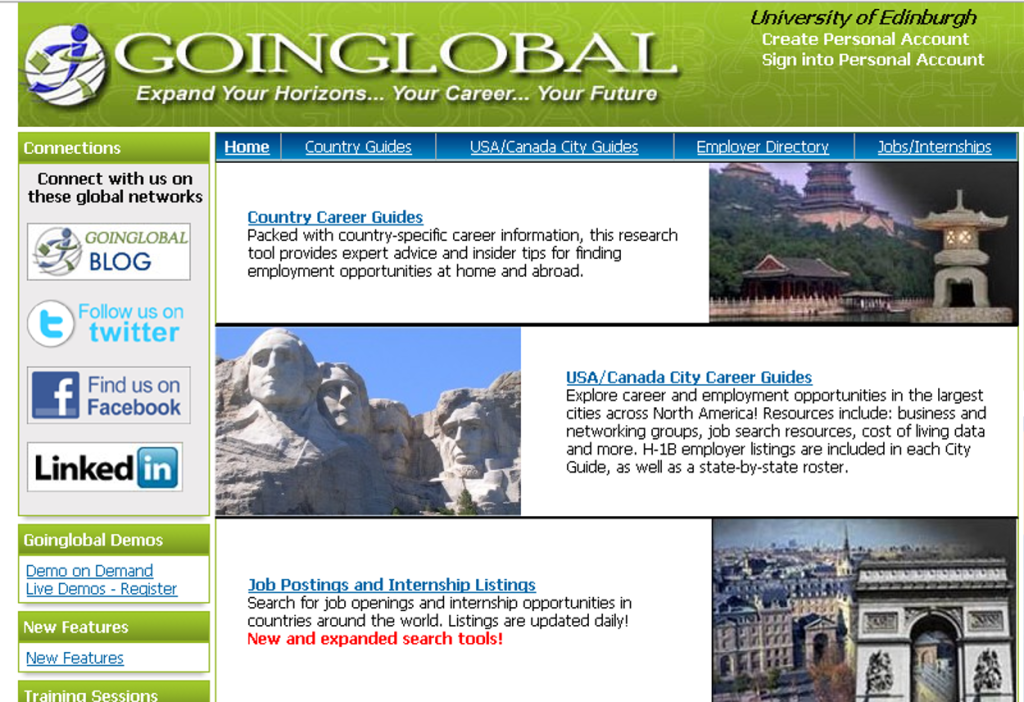Thanks to one of my colleagues Matt Vickers for this post. It gives some useful insight into how people approach making career decisions. Those of you who’ve worked before – or who are currently working – may recognise some of these thought processes from when you made early career decisions.
 Knowing what you want to do can be tricky – even scary. Having so many options can make it daunting. Sometimes it can help to take a step back and to ask: so what can I rule out; what don’t I want to do?
Knowing what you want to do can be tricky – even scary. Having so many options can make it daunting. Sometimes it can help to take a step back and to ask: so what can I rule out; what don’t I want to do?
Break it down.
One reason that people struggle with career choice is that jobs are complicated, made up of many elements: tasks, employer, location, responsibilities, outputs, expectations and salaries, to name but a few.
So if there is a job you are adamant you don’t want to do, take a moment to break it down into some of its components in order to analyse what exactly it is that you don’t enjoy. Getting a sense of this will enable you to rule out a host of other similar roles and so help narrow down your career choices.
A familiar refrain: “I don’t want to work in finance”.
Why?
- Location – I don’t fancy living in London.
- Motivation – making money doesn’t interest me.
- Pressure – high and I may not cope.
- Employer – big banks, which don’t match my values and I might not fit-in.
From this we can glean that working in any high-pressure role in London, where money/profit is a key motivator, isn’t a good option for the individual concerned. But can we be more discerning and break it down further?
For example, if a problem with the employer is “it’s a big bank”, does that mean that being a bank itself is the issue, or is it about the size of the organisation? (Hence, would a small bank be okay, or a big organisation which also has finance roles, but isn’t a bank – such as the NHS?)
Opposites attract.
It can also be helpful to reflect on any opposites of these elements. Consider for a moment, what might be the opposite of:
- Living in London? Perhaps a smaller city, or a town? Perhaps in northern England, Scotland or Wales?
- Motivation – if money doesn’t interest, what does? What would make you want to get out of bed at 7am on a wet Monday morning?
- High pressure – so when have you felt unstressed in your working life and what kind of job (tasks) were you performing?
Don’t throw the baby out with the bath water…
That said, one of the perils with careers is that it is easy to generalise, and make assumptions. Some students assume finance equals big business. But it may not be. You could work in finance for the public sector (e.g. NHS, local authority, a university or government department), or the third sector (an accountant with an NGO), or even in a small company (finance office of a tech stat-up or local marketing company). So in this case differentiating between the job role and employer/context is important.
…or be swayed by opinion
Getting the opinions of others who know you well can be helpful. They may recognise talents and traits in you that you are completely unaware of. But equally they may not know you quite as well as you think!
And beware the friend/relative who advises “oh I hate my job – don’t do it!” That is their opinion, but to form your own view, you need facts, not feelings. What is it about the job that they think isn’t right for you? Ask what the job involves and gather information about it to enable you to picture yourself in the role/setting and then decide if you should discount it. And if so, what else can you similarly rule out? What might the opposite aspects be?
In summary
Reflecting on what you don’t want to do can be insightful and offer a useful starting point in your career planning. Take the time to drill down to understand which specific factors you wish to exclude. But make sure you are rejecting them (and possible career options) based on fact, not generalisations or the incorrect opinions of others!





